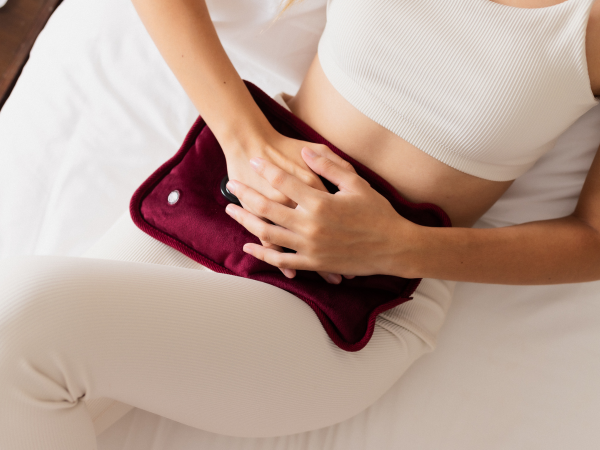Did you know that endometriosis affects about 1 in 10 women of reproductive age? That’s a lot! If you’re not familiar with endometriosis, it’s a condition that can cause some pretty unpleasant symptoms, like pelvic pain, painful periods, and even infertility. But don’t worry, we’ve got you covered with some helpful information to help you manage this condition.
In this blog post, we’ll start with the basics, but we’ll also dive deeper into some of the lifestyle factors that can affect endometriosis, including diet. If you’re looking for some tips on what to eat (and what to avoid), be sure to stick around for our section on recommended foods for endometriosis.
What is Endometriosis?
Endometriosis is a medical condition in which the tissue that normally lines the inside of the uterus grows outside of the uterus, usually on the surfaces of other organs within the pelvis, such as the ovaries, fallopian tubes, or bladder. This misplaced tissue can cause inflammation, pain, and sometimes scarring in affected areas.
The symptoms of endometriosis can vary from person to person, and some women may experience no symptoms at all. However, for many women with endometriosis, the symptoms can be severe and can interfere with daily activities and quality of life. Some common symptoms include pelvic pain, painful periods, heavy bleeding, painful bowel movements, and infertility. It’s important to consult a doctor to get an official diagnosis and start on a path toward treatment.
Signs and Symptoms of Endometriosis
Endometriosis symptoms can vary in severity from woman to woman. Some of the most common signs and symptoms of endometriosis include:
- Painful periods: Women with endometriosis often experience severe menstrual cramps that can be so painful that they interfere with daily activities.
- Pelvic pain: Women with endometriosis may experience chronic pelvic pain that is not related to their menstrual cycle. This pain may be felt in the lower abdomen, lower back, or rectum.
- Infertility: Endometriosis can also cause infertility in some women. This occurs when the tissue growths interfere with the function of the ovaries, fallopian tubes, or uterus.
- Painful bowel movements or urination: Women with endometriosis may experience pain during bowel movements or urination, especially during their menstrual cycle.
If you are experiencing any of these symptoms, it’s essential to consult with your doctor or healthcare provider.
Foods Recommended for Those with Endometriosis
Don’t count on the power of a good diet! While there’s no one-size-fits-all approach to endometriosis symptom management, there are some foods that may be helpful for managing inflammation and reducing pain.
Here are some foods that may be beneficial:
- Foods rich in omega-3 fatty acids: Omega-3 fatty acids are known for their anti-inflammatory properties and may help reduce endometriosis pain. Some good sources of omega-3s include fatty fish like salmon, sardines, and mackerel, as well as chia seeds, flaxseeds, and walnuts.
- Fruits and vegetables: Fruits and vegetables can help provide important nutrients and antioxidants that may help reduce inflammation.
- Fiber-rich foods: Fiber-rich foods can help promote regular bowel movements and reduce constipation, which is a common symptom of endometriosis. Good sources of fiber include whole grains, beans, lentils, fruits, and vegetables.
- Lean protein sources: Poultry, fish, tofu, and legumes can help provide important nutrients while reducing inflammation and supporting overall health.
There are certain foods to steer clear of that may worsen your symptoms.
- Processed foods: Processed foods, such as those high in refined carbohydrates, added sugars, and unhealthy fats, may contribute to inflammation and worsen symptoms.
- Red meat: Red meat contains arachidonic acid, which can increase inflammation in the body and may exacerbate symptoms.
- Dairy products: Some women with endometriosis report that dairy products worsen their symptoms, potentially due to the hormones and inflammatory compounds found in dairy.
- Caffeine: Caffeine can interfere with hormone metabolism and may increase pelvic pain and discomfort associated with endometriosis.
- Alcohol: Alcohol can worsen inflammation and may increase estrogen levels, which can exacerbate symptoms.
Remember, making dietary changes alone may not be enough to manage your endometriosis. Be sure to talk to your doctor or healthcare provider about your symptoms and develop a comprehensive treatment plan that works for you.
Other Recommended Lifestyle Changes
In addition to making dietary changes, there are other lifestyle changes that may help manage symptoms. Here are some recommendations:
- Exercise regularly: Regular exercise can help reduce inflammation, improve mood, and manage pain associated with endometriosis. Aim for at least 30 minutes of moderate exercise most days of the week.
- Get enough sleep: Getting enough sleep is essential for overall health and may help reduce inflammation and manage pain associated with endometriosis. Try to get 7-8 hours of sleep each night.
- Manage stress: Stress can exacerbate symptoms, so finding ways to manage stress is important. Try relaxation techniques like deep breathing, meditation, or yoga.
- Avoid smoking: Smoking can increase inflammation and worsen symptoms, so it’s best to avoid smoking altogether.
By making these lifestyle changes and incorporating the recommended foods into your diet, you may be able to manage your symptoms and improve your overall health. Remember, it’s important to work with your healthcare provider to develop a comprehensive treatment plan that works for you.

